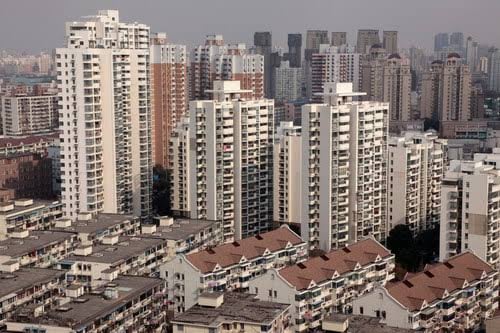China Injects Billions into Troubled Property Market

China's ongoing property crisis, which began in 2021, has prompted significant interventions by Chinese authorities to stabilize the sector and mitigate its impacts on the world's second-largest economy.
The People's Bank of China (PBOC) announced a $41.5 billion facility to support affordable housing initiatives. This fund is intended to assist local state-owned enterprises in purchasing unsold homes.
This move aligns with statements by some senior politicians encouraging local governments to buy properties at reasonable prices and resell them as affordable housing.
To stimulate the property market, the central bank also abolished the minimum mortgage rate and reduced the minimum down payment for first-home buyers from 20% to 15%.
The down payment requirement for second homes was lowered from 30% to 25%. These measures come amid a backdrop of declining home prices. New home prices fell for the tenth consecutive month in April, marking a 0.6% month-on-month decline—the steepest since November 2014.
What Does This Mean for Me?
The financial struggles of property developers in China can be traced back to 2021, when the government imposed restrictions on borrowing by major real estate firms. This regulatory tightening has led to several large developers defaulting on their debts. A Hong Kong court ordered Evergrande, the world's most indebted property developer, to liquidate in January.
These efforts reflect China's broader strategy to address the severe financial squeeze on its property developers and stabilize a sector that has been a key driver of economic growth until recent years. The combination of financial support and regulatory adjustments aims to revitalize the property market and support broader economic stability.
More News
.webp)
Japan’s Rate Shift Is Rippling Through Global Bond Markets
1 week ago

China’s Growth Engine Stalls as Consumers and Investors Pull Back
1 week ago

Egypt’s Recovery Gains Traction as Household Pressure Lingers
3 weeks ago

OECD Warns AI and Tariffs Will Test the Global Economy
3 weeks ago

Zero Tariffs, Higher Drug Bills as US and UK Reset Pharma Trade
3 weeks ago

Catastrophe Bonds Go Global as Climate Risk Meets Yield Hunting
1 month ago
.webp)
Canada Shields Steel and Lumber Industries From Tariffs
1 month ago

Trump Drops Selected Tariffs in Response to Inflation Pressures
1 month ago